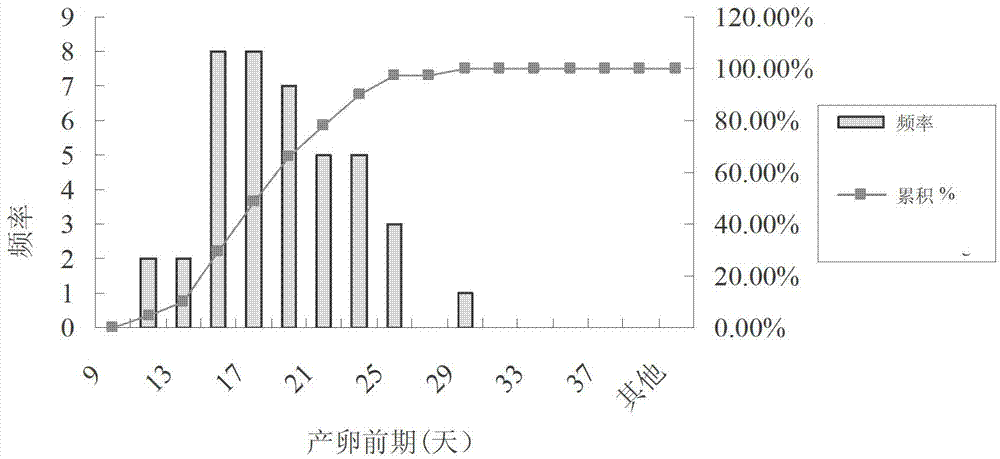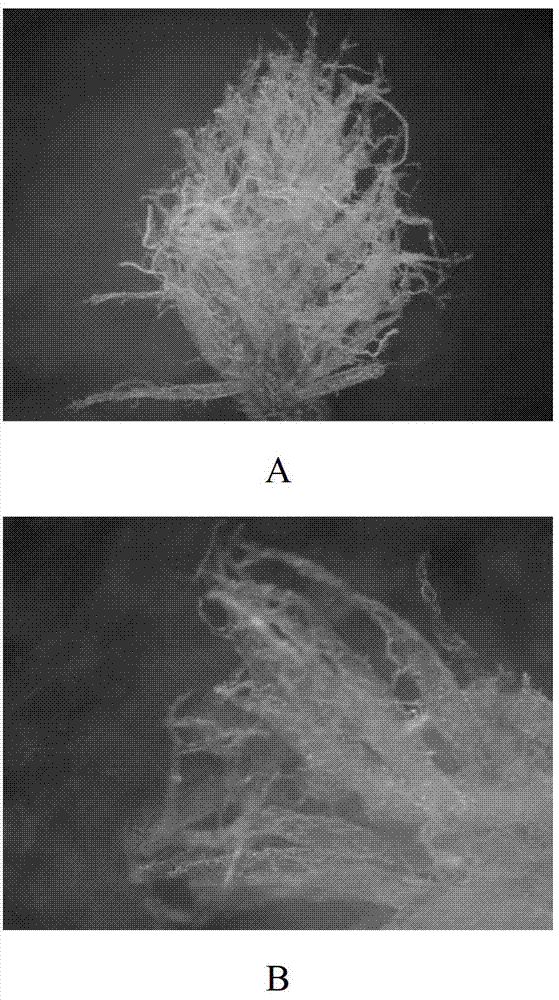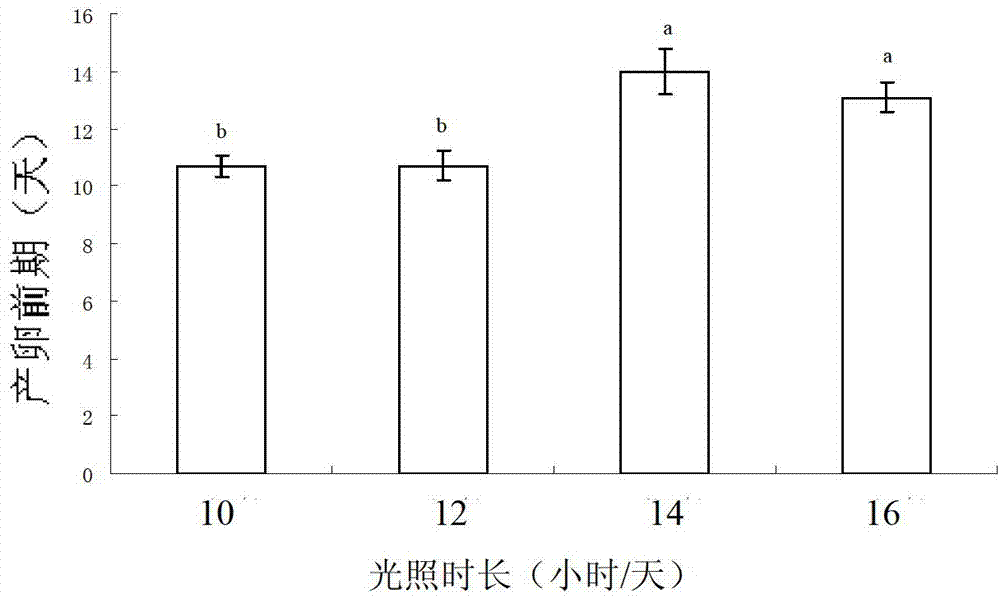Natural enemy insect (coccinella septempunctata) diapause induction method
A technology for diapause and ladybird seven-star, applied in animal husbandry and other directions, can solve the problems that products cannot be stored for a long time, cannot be used in a timely manner, and affect the efficiency of reproduction, so as to promote large-scale reproduction, prolong product shelf life, and improve prevention and control. The effect of efficiency
- Summary
- Abstract
- Description
- Claims
- Application Information
AI Technical Summary
Problems solved by technology
Method used
Image
Examples
Embodiment 1、 7
[0049] The diapause induction test of embodiment 1, seven-spot ladybird
[0050] 1. Screening test for timing of diapause regulation and manipulation
[0051] Using seven-spot ladybugs (female) at different stages (egg, larva, pupa, and adult) as test materials, at 18°C, refer to the method shown in Table 2 (insect stage-light cycle) for diapause induction, and the induction time for the first eclosion adults was 240h. After the induction, the diapause situation of Coccinosa in each treatment group was observed and the diapause rate was counted. The experiment was repeated 3 times, and the results were averaged. .
[0052] The results are shown in Table 2. The first eclosion adults of the seven-spot ladybug (the adults within 12 hours of eclosion, belonging to the pre-oviposition stage) are the key sensitive insect stages of its diapause, and only the first eclosion adults are in short light (S, photoperiod Under the condition of L10:D14), most of them can enter diapause (...
Embodiment 2、 7
[0081] Embodiment 2, the diapause maintenance test of Coccinella chinensis
[0082] 1. Test method
[0083] (1) Effect of photoperiod: According to the results of diapause induction test in Example 1, under the conditions of temperature 18°C and air relative humidity 70%-80%, the first eclosion adults (within 12 hours) undergo photoperiod L10:D14 , L12:D12, L14:D10 were induced to enter diapause for 240 hours, and the diapause adults were still reared under the original conditions. Observe and record the time when adult diapause is released and eggs start to be laid every day, and about 30 females are observed in each treatment. The experiment was repeated 3 times, and the results were averaged. At the same time, a treatment group in which diapause adults were reared under dark conditions was set up.
[0084] (2) Regulating effect of temperature: According to the results of diapause induction in Example 1, at 24°C and 30°C, the incidence of diapause of adults was lower, a...
Embodiment 3、 7
[0095] Embodiment 3, the diapause release test of Coccinella chinensis
[0096] 1. Test method
[0097] A repetitive test with two factors and two levels each was carried out in an artificial climate chamber (Ningbo Jiangnan RXL-500C). The two photoperiod levels were L10:D14 and L16:D8, and the two temperature levels were 18°C and 24°C. ℃; air relative humidity 70%±10%; light intensity 5000Lx. Adults (41 days old) induced to diapause under the combination of temperature and light at 18°C and L10:D14 were reared under the above four treatment conditions. Observe and record the release of adult diapause every day (those who resume oviposition within the theoretical oviposition period (20 days) will be regarded as individuals who have been released), and the time when oviposition begins. Observe about 30 females in each treatment. The experiment was repeated 3 times, and the results were averaged.
[0098] 2. Test results
[0099] After environmental conditions were chang...
PUM
 Login to View More
Login to View More Abstract
Description
Claims
Application Information
 Login to View More
Login to View More - R&D Engineer
- R&D Manager
- IP Professional
- Industry Leading Data Capabilities
- Powerful AI technology
- Patent DNA Extraction
Browse by: Latest US Patents, China's latest patents, Technical Efficacy Thesaurus, Application Domain, Technology Topic, Popular Technical Reports.
© 2024 PatSnap. All rights reserved.Legal|Privacy policy|Modern Slavery Act Transparency Statement|Sitemap|About US| Contact US: help@patsnap.com










